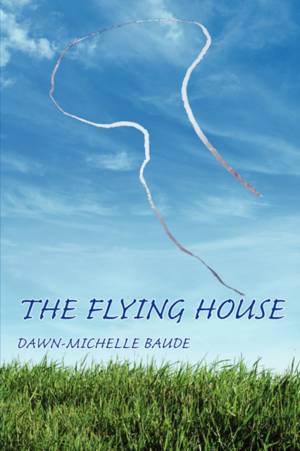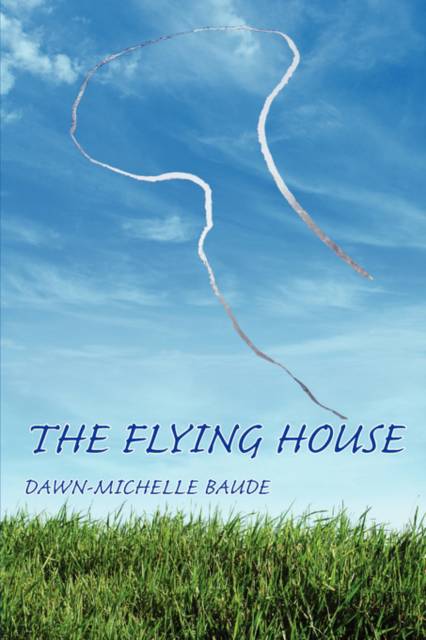
- Afhalen na 1 uur in een winkel met voorraad
- Gratis thuislevering in België vanaf € 30
- Ruim aanbod met 7 miljoen producten
- Afhalen na 1 uur in een winkel met voorraad
- Gratis thuislevering in België vanaf € 30
- Ruim aanbod met 7 miljoen producten
Zoeken
Omschrijving
From the ancient to the contemporary, the personal to the literary, THE FLYING HOUSE is an investigation of the "relic" in the largest sense of the term. Written on-site in the Middle East and Europe, the poems inhabit a space at once contemporary and historical, in which current conflicts recall old wars and archeological artifacts rhyme with cutting-edge fashions. Part travelogue, part cultural compendium, the poems move through a poetic space in which the influence of Robert Duncan and Gustaf Sobin are as apparent as the influences of Alice Notley, Joanne Kyger, and Susan Howe. Informed by literary and cultural theory as well as humanist traditions, THE FLYING HOUSE explores the gap between the empirical and the emotional sometimes with dread, but more often with joy. - ABOUT THE AUTHOR - DAWN-MICHELLE BAUDE, a Senior Fulbright Scholar, is the author of several volumes of poetry, including GAFFIOT EXQUIS (1997), THE BOOK OF ONE HAND (1998), THE BEIRUT POEMS (2001), EGYPT (2002), and THROUGH A MEMBRANE / CLOUDS (2006). She earned an MA from the New College of California, an MFA from Mills College, a Diplôme des etudes approndis in Shakespeare from the Sorbonne, and a PhD in English from the University of Illinois - Chicago. She teaches in the U.S. and in Europe. - ADVANCE PRAISE FOR THE FLYING HOUSE - "Dawn-Michelle Baude's THE FLYING HOUSE-written in many countries ("sites") and including some ten years of work-reads like a long poem with its unifying themes of place and impermanence, permanent violence, [and] traces of past. . . . The elegant, open-field line casts over the page like a lace net-Pausanias as if something psychically earth-shaking actually happened while living the guide book that is now our ancient history. The music, a fast line, pulls the reader forward by the throat. This is a beautiful, puzzling, sad, and fascinating book." -ALICE NOTLEY "How wonderful to finally have a full-length collection of poems by Dawn-Michelle Baude-a poet who has lived a poet's life, itinerant, thoughtful, and, despite her title, on the ground. Or, to use her terminology, "site-specific." Baude reminds us of the importance of presence in our understanding of language, history, politics, poetry. It emerges via the repeated plosive "p" in her stunning meditation on the power of the image over language, "Once Upon A Train Station (A Museum)." Countering the structuralist dogma of our day she writes: "(I've always felt) / language innocent / image indelible." There is an urgent necessity to her sequence "The Beirut Poems" in which Baude interweaves a disturbing, yet lyrical violence, "his slender rifle / its silver / vaunts the moon / rattles the stars" with aesthetic hesitation, "Who could discuss poetry in this / ruckus." Acting as a framework to this beautiful book are her "Fieldwork" poems, which, like Duncan's Passages, provide the conditions for and commentary on the poet's larger project. Above all, THE FLYING HOUSE is an ethical book, the record of a poet who believes poetry can still help us recover what remains humane in human universe." -JENNIFER MOXLEY
Specificaties
Betrokkenen
- Auteur(s):
- Uitgeverij:
Inhoud
- Aantal bladzijden:
- 132
- Taal:
- Engels
- Reeks:
Eigenschappen
- Productcode (EAN):
- 9781602350533
- Verschijningsdatum:
- 25/02/2008
- Uitvoering:
- Paperback
- Formaat:
- Trade paperback (VS)
- Afmetingen:
- 152 mm x 229 mm
- Gewicht:
- 204 g

Alleen bij Standaard Boekhandel
+ 43 punten op je klantenkaart van Standaard Boekhandel
Beoordelingen
We publiceren alleen reviews die voldoen aan de voorwaarden voor reviews. Bekijk onze voorwaarden voor reviews.











